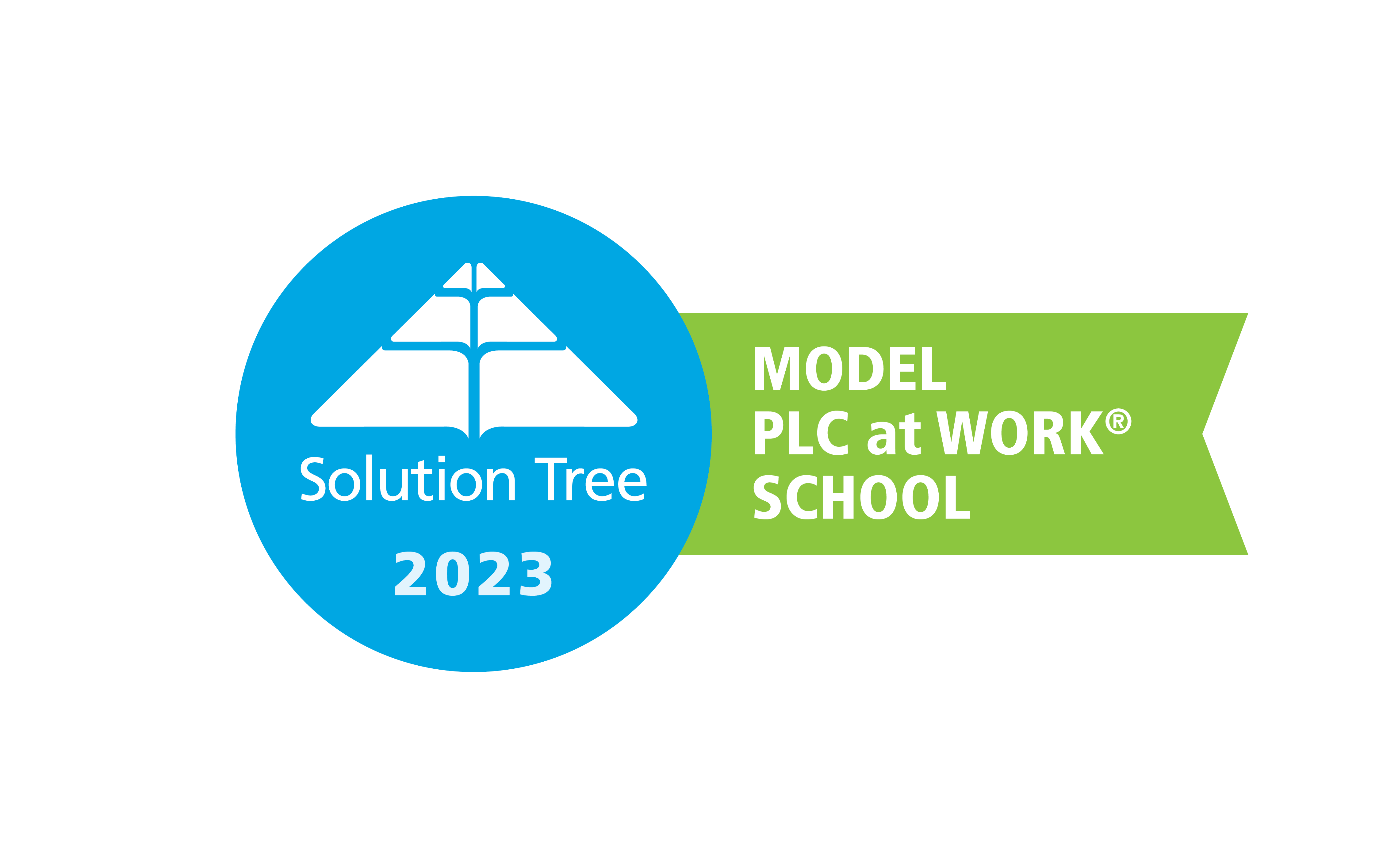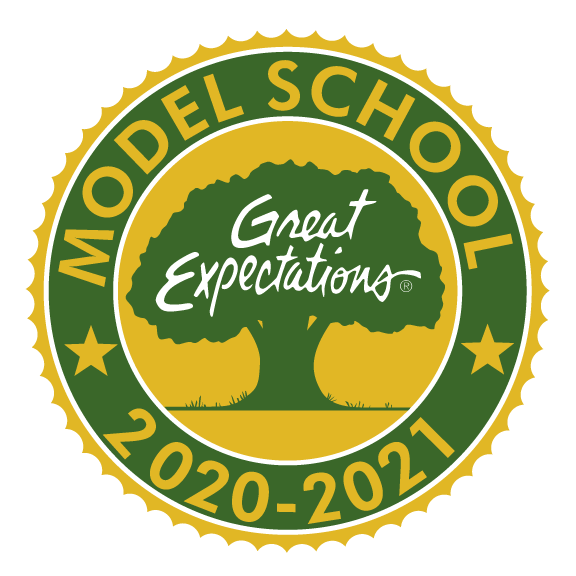Academic Info
PLC at Work

Honea Path Elementary RECOGNIZED AS A MODEL PROFESSIONAL LEARNING COMMUNITY AT WORK®
HPE was recently recognized by Solution Tree for its sustained success in raising student achievement. The school’s successful implementation of the Professional Learning Communities at Work ® process was a major contributing factor in the improved achievement of its students.
PLCs are schools and districts in which educators recognize the key to improved learning for students is on-going, job-embedded learning for the adults who serve those students. The three big ideas of a PLC call upon educators to:
1. Focus on learning.
2. Build a collaborative culture.
3. Create a results orientation.
Schools are recognized based on strict criteria, including demonstration of a commitment to PLC concepts, implementation of these concepts for at least three years, and clear evidence of improved student learning over that period. Once measurable results can be seen, the school must explain its practices, structures, and culture and submit its application for consideration by the PLC Review Committee.
According to the Champions of PLC at Work®, educators in the schools and districts selected for this recognition have shown “a sustained commitment to helping all of their students achieve at high levels. They have been willing to alter the structure and culture of the organization to reflect their commitment. We applaud them and congratulate them for achieving this very significant milestone on the never-ending PLC journey.”
Recognized model PLC schools are listed on allthingsplc.info, where they share implementation strategies, structures, and performance with other educators interested in improving their schools. Tools for team collaboration, articles and research about PLCs, blog posts, and other related resources are also available on the site. The site was developed and is maintained by Solution Tree, a leading provider of educational strategies and tools that improve staff and student performance. For more than 20 years, Solution Tree resources have helped K–12 teachers and administrators create schools where all children succeed.
Great Expectations

The mission of Great Expectations is to motivate, inspire, and challenge individuals to achieve excellence in learning and living.
6 Basic Tenets or Beliefs of Great Expectations
High Expectations…Robert Rosenthal and Lenore Jacobson
Educators - who hold high expectations for their learners, communicate those expectations clearly, and encourage learners in their charge to work hard in order to rise to the level of those expectations – can make a difference in students’ success. High expectations move learners forward, even if those learners don’t achieve total mastery. Educators also have a role in helping their 21st century learners set significant aspirations for themselves in a media-rich, global network of unlimited possibilities.
“We must have courage to bet on our ideas, to take the calculated risk, and to act. Everyday living requires courage if life is to be effective and bring happiness."
- Maxwell Maltz, American cosmetic surgeon, author of Psycho-CyberneticsTeacher Attitude and Responsibility…Haim Ginott, John and Eunice Gilmore
Educators are accountable, not only for imparting content, but for developing virtuous citizens. Educators’ own attitudes toward their responsibilities are a model for all whom they meet. To lead by example means to hold oneself to a higher standard and to support others as they develop their own sense of responsibility. Great leaders create an influence that others strive to follow.
“Manners are like the zero in arithmetic; they may not be much by themselves, but they are capable of adding a great deal of the value of everything else."
- Freya Stark, British explorerAll Children Can Learn…William Glasser
All learners can achieve a level of success greater than their previous success, no matter what labels (disabled, special needs, low socioeconomic status, unstable home life, inner-city, rural, or gifted) are placed upon them. Innovative educators are cognizant of the planning, problem-solving, communications, and creativity needed for work in the twenty-first century.
“We are driven by five genetic needs: survival, love and belonging, power, freedom, and fun."
- William Glasser, American psychiatristBuilding Self-Esteem…Harris Clemes, Reynold Bean and Aminah Clark
Learner’s self-esteem is closely linked to their internal motivation to embrace all that is asked of them in life and in the learning environment. It greatly affects their courage to try new things or express their own ideas. A healthy self-esteem is a positive factor in drop-out prevention and is at the crux of student’s sound choices about their safety and health.
“Have faith in yourself! Have faith in your abilities! Without a humble but reasonable confidence in your own powers, you cannot be successful or happy."
- Norman Vincent Peale, minister, authorClimate of Mutual Respect…Rensis Likert
Learners are empowered to take risks necessary for growth when they are in a learning environment where mutual respect is evident. In the ideal situation, learners are valued, their ideas are considered, and their mistakes are seen as opportunities for correction and reflection. Additionally, there is courteous regard for one another, and time is structured to allow all learners to process and produce ideas and opinions.
“Just asking a team to be creative won’t get you to be innovative. It’s having a corporate climate that give people space to experiment and take risks.”
̶ Steve Brown, author, radio announcer, seminary professorTeacher Knowledge and Skill…Benjamin Bloom
Innovative educators are knowledgeable and skilled in techniques that enable learners to maximize the benefits of each learning experience. Innovative educators continue to expand their arsenal of pedagogical techniques and focus on keeping pace with current educational initiatives. Innovative educators realize their influence in the learning environment; they can motivate, inspire, and challenge individuals to achieve excellence in living and learning. Innovative educators are life-long learners.
Teacher’s Creed
By Author Unknown
I am a teacher. I accept the challenge to be sagacious and tenacious in teaching every student, because I believe every student can learn.
I accept the responsibility to create a learning environment conducive to optimum achievement academically, socially and emotionally.
I actively pursue excellence for my students and myself.
I provide a model of decorum and respect that guides my students as well as honors them.
I affirm superlative expectations for my students and myself.
I cherish every student.
I am a teacher. I change the world one student at a time.
Four step process:
I do, you observe
I do, you assist
You do, I assist
You do, and I observe
Eight Expectations for Living
Educators helping students achieve excellence guide them in adhering to the following expectations:
